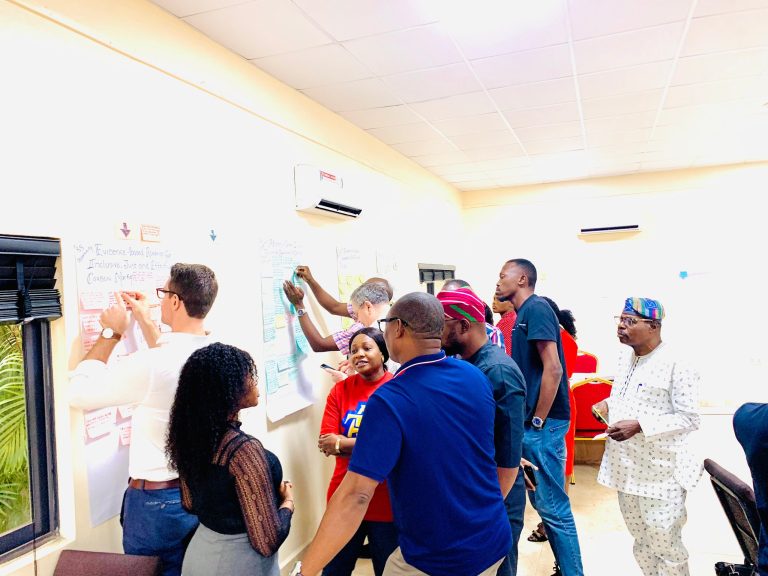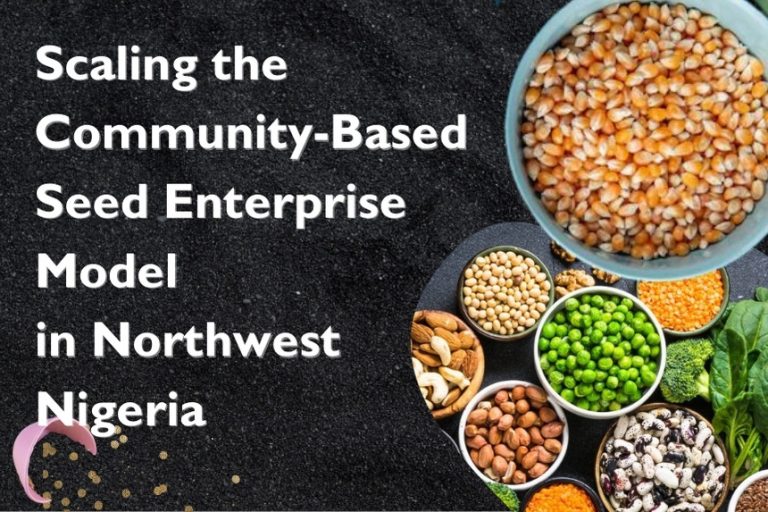Projects

Policy Support for Economic Growth (PSEG) Activity
The Policy Support for Economic Growth (PSEG) Activity is a five-year USAID-funded activity led by Michigan State University (MSU) in collaboration with the International Food Policy Research Institute (IFPRI), alongside the Environmental and Economic Resource Center (EERC) and the Nigeria Economic Summit Group Policy Innovation Center (NESG–PIC). PSEG seeks to

Scaling the CBSE Model in Northwest Nigeria (Kaduna and Kano)
Despite Nigeria’s vast agricultural potential, access to quality seeds remains a major challenge with over 90% of the demand for improved seed varieties unmet, hindering crop productivity. This intervention in Kaduna and Kano is designed to address this gap by strengthening the capacity of seed producers and fostering linkages between

Extreme Citizen Science in Agriculture – EcsAgri Project
USE OF COMMUNICATION AND MAPPING STRATEGY FOR PROMOTING CLIMATE-SMART AGRICULTURE IN SOUTHWEST NIGERIA: THE eCSAGRI PILOT PROJECT. PROJECT FUNDER UK Research and Innovation (UKRI), European Research Council PROJECT LEAD The Environmental and Economic Resource Centre (EERC) IMPLEMENTING PARTNERS Mapping for Change, University College of London (UCL), and ExCiteS The eCSAgri

Making Carbon Market Works for Smallholder Farmers: Opportunities and Challenges in Nigeria
This study explores the potential of carbon credits to benefit smallholder farmers, food and nutrition security, and sustainable land use in Nigeria. The report covers the history of carbon markets, the types of carbon credits, and the typical market actors as well as the most prevalent critique and risks associated

The State of Carbon Market in Northeast Nigeria
Executive Summary This report explores climate mitigation and adaptation options with the potential for carbon credits opportunities among households in Adamawa, and Gombe, Northeast Nigeria (NEN). The overarching objective is to support income generation while building resilience to climate change. The report is built on consultations with relevant stakeholders to
Higher Food Price, Social Safety Nets and Food Consumption Diversity in Nigeria
Consumption of diverse diets is an important factor in promoting good health and nutrition. Most of the studies on food demand in developing countries focused largely on the quantity consumed of specific foods or food-groups with little attention on diversity in food consumption. This study examined the extent of diversity

Building Climate Resilience and Carbon Market Opportunities in Northeast Nigeria – AgriCarbon Project
About the Project Northeast Nigeria (NEN) is characterized by harsh weather conditions, with the majority of the population being smallholder farmers, pastoralists, fishermen/women, and forest-dependent households who derive their livelihoods from natural resources and thus, are most vulnerable to climate shocks and natural hazards and consequently loss of investments leading
